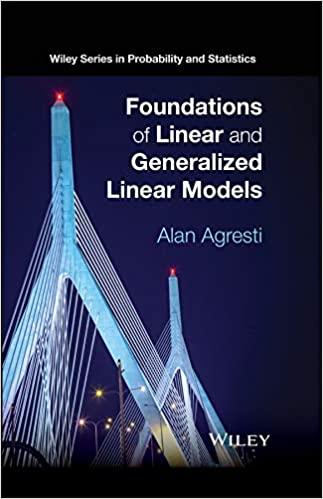Two vectors that are orthogonal or that have zero correlation are linearly independent. However, orthogonal vectors need
Question:
Two vectors that are orthogonal or that have zero correlation are linearly independent. However, orthogonal vectors need not be uncorrelated, and uncorrelated vectors need not be orthogonal.
a. Show this with two particular pairs of 4 × 1 vectors.
b. Suppose u and v have corr(u, v) = 0. Explain why the centered versions u∗ = (u − ū) and v∗ = (v − v̄) are orthogonal (where, e.g., ū denotes the vector having the mean of the elements of u in each component).
Show that u and v themselves are orthogonal if and only if ū = 0, v̄ = 0, or both.
c. If u and v are orthogonal, then explain why they also have corr(u, v) = 0 iff ū = 0, v̄ = 0, or both. (From
(b) and (c), orthogonality and zero correlation are equivalent only when ū = 0 and/or v̄ = 0. Zero correlation means that the centered vectors are perpendicular. Centering typically changes the angle between the two vectors.)
Step by Step Answer:

Foundations Of Linear And Generalized Linear Models
ISBN: 9781118730034
1st Edition
Authors: Alan Agresti






